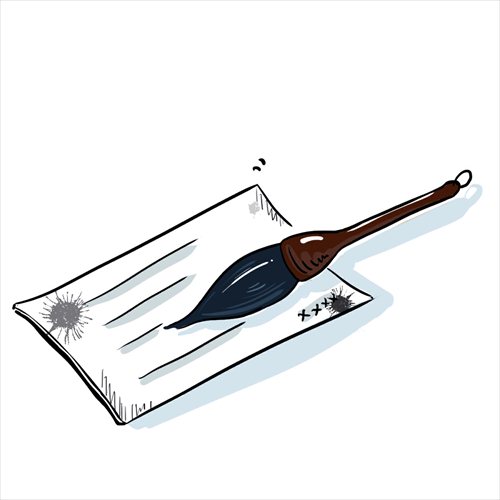Making an offer that is more than an emoticon

Illustration: Chen Xia/GT
The Shaanxi Normal University has adopted a novel approach to its enrolment procedures. This year it sent 4,500 calligraphic handwritten letters of acceptance to high school students. These elegant and beautifully crafted letters, works of art in themselves, were individually created by 12 retired university professors who filled in the personal details of each student in their letters. This is the 10th consecutive year the university has sent out these Chinese brush and pen acceptance letters and they have become treasured items by the recipients and acclaimed online.
These senior academics (the oldest is 83) spend more than five days each creating these letters and the writers include the noted calligrapher 73-year-old Professor Lü Jiuru who devoted himself to teaching science for 34 years. His distinctive style became a national sensation when he illustrated the famous poem by the former Premier Wen Jiabao Look up at the Starry Sky. It was published on the People's Daily Weibo account.
While these elegant examples of calligraphy and academic success have been welcomed online their popularity grew slowly at the beginning. But new media has a way of expanding small events and other institutions saw these attractive letters of acceptance and have been inspired to try similar approaches to their admission procedures and boost their own images.
To push their institutions and make them look good many university public relations departments have been encouraging mobile phone feedback from their alumni and undergraduates telling them to send a "thumbs up to your alma mater" sometimes adding: "Show you love the place and do this." A lot of positive responses apparently make these universities feel good and appreciated.
But this electronic popularity does not reflect the true spirit of academia. A "thumbs up" is a long way from studying seriously and expanding knowledge. Universities are no longer ivory towers but are a functional part of society and play an important role in shaping the characters, personalities and ethos of their students who are destined to become active and positive citizens.
Some universities try to maintain the classical traditions and approach. Every year Tsinghua University sends a book of classical literature and a letter from the president to its forthcoming freshmen. This year students received by courier a copy of the Henry David Thoreau naturistic work Walden. President Qiu Yong explained his choice: "Although the era in the book is probably strange to you, the dreams and ambitions of the younger generation are similar though set in different times." Walden is about altruistic thinking and plain natural living - things students should aim for.
The letters of acceptance that Nankai University, in the north of China, sends are famous for including invitations to literary festivals. The idea is that budding students should immerse themselves in good books over the summer vacation and not aimlessly kill time, as most students do.
These welcoming approaches not only display an understanding of academic tradition and culture but they are also generous and humanitarian. Most of these gift letters are conditional upon the student accepting the offer of admission. But in Japan, some universities and colleges will politely reject students with handwritten letters. The Department of Literature at Osaka University offers well-constructed and even poetical advice for the students it rejects softening the blow of rejection with expressions like "it has been stormy and rainy here." Acceptance letters can talk about "white rabbits hopping happily around."
These well-constructed and culturally sound approaches offer new students a good approach to academic life. They are not flashy or as instantly applicable like "thumbs up" might be. But they bring an introduction to a world of learning, not a world of emoticons and instant fame.
The opinions expressed in this article are the author's own and do not necessarily reflect the views of the Global Times.